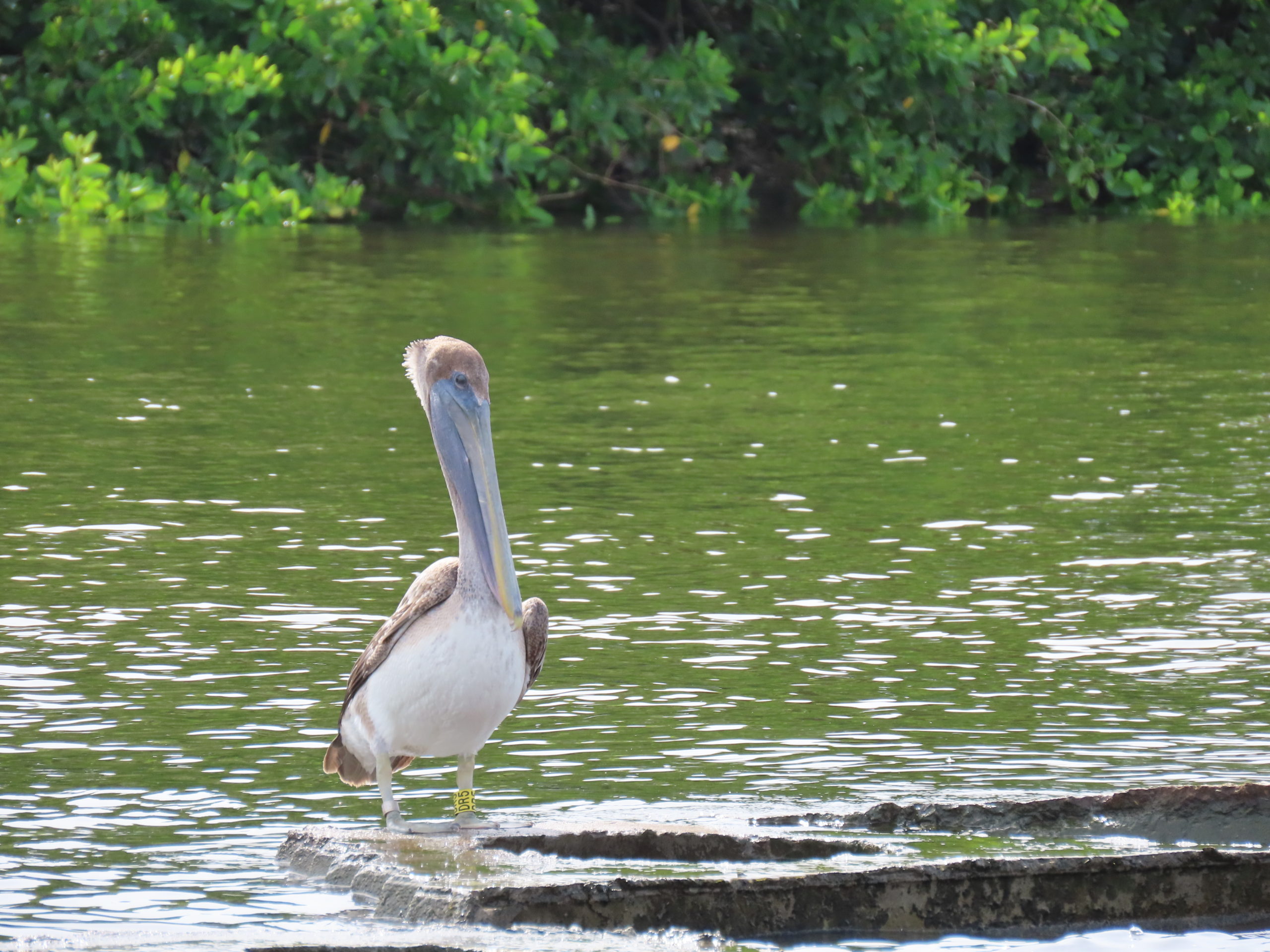Audubon Florida received a $5,000 grant from the Community Foundation of Sarasota. It will use this money to begin a banding project for brown pelicans in the Tampa Bay region. The banding project will provide more information on survival rates following accidental hooking. It will also help them learn more about repeated entanglements for released birds and other areas related to brown pelican conservation.
What are entanglements?
Entanglements occur usually due to fishing gear and often lead to injury and death. Fishing piers are the hotspots for these types of incidents between pelicans and anglers. Rescue organizations have been documenting hundreds of pelicans hooked in just a single month. Audubon Florida’s goal is to band 50-100 birds over a 12-month period. Another 75-100 successfully rehabilitated brown pelicans will also be banded, then released.
“We know that getting hooked and entangled is a problem with pelicans,” said Jeff Liechty, Coastal Biologist for Audubon Florida. “We find pelican carcasses that have been entangled, we know that dozens are rescued each month, but there is a lot we don’t know. This project will help us understand how pelicans are interacting with fisheries, how they are faring over time, and help quantify the impact that entanglement and hooking is having on the population. Ultimately, this project will help inform conservation strategies that help keep pelicans safe.”
Related: Brown Pelican Entanglements a Worrying Issue
Audubon Florida is partnering with Seaside Seabird Sanctuary in Indian Shores, Skyway Fishing Pier State Park and the Florida Fish & Wildlife Conservation Commission, as well as with park managers, rescuers, rehabilitators and anglers.
Liechty said work will be done for the banding project in the Tampa Bay area from Sarasota, Manatee, Hillsborough and Pinellas counties. “But Pelicans are wide-ranging and migratory, so we may end up finding that some of the birds that are being affected are coming from other areas of the Gulf of Mexico or even the Atlantic.”
Brown Pelican Conservation
Mark Rachal, Audubon Florida Coastal Island Sanctuaries Manager, said brown pelicans are one of Florida’s iconic bird species. However, they are particularly susceptible to entanglement and potentially death by fishing line.
“Brown Pelicans were pushed to the brink of extinction twice; first due to hunting and then from the effects of pesticides,” Rachal said. “These birds have made an incredible recovery and are a success story of the Endangered Species Act and all the conservation work that went into protecting and restoring their populations. One of the biggest threats pelicans face today is entanglement in fishing line.”
The Community Foundation of Sarasota
The Community Foundation of Sarasota County is a public charity founded in 1979 by the Southwest Florida Estate Planning Council. It is a resource for caring individuals and the causes they support. It enables them to make a charitable impact on the community. The Foundation holds assets of $520 million in over 1,570 charitable funds. It has awarded grants and scholarships totaling $27.5 million dollars last year. This money went to areas such as education, arts, health, and human services, civic engagement, animal welfare and the environment.

Since its founding, the Community Foundation has been able to grant more than $350 million to area nonprofit organizations. This is thanks to the generosity of charitable individuals, families, and businesses. For more information, visit www.CFSarasota.org or call (941) 955-3000.
Tampa Audubon
Tampa Audubon has been working on the Skyway pier and other locations to determine how many birds are getting hooked by fishing gear. Becky Schneider, the non-game biologist for FWC, heads the pier committee, called Hooked Birds Working Group.
Ann Paul, with Tampa Audubon, has said the entanglements interfere with the brown pelicans’ ability to establish and keep a healthy population.
And Rachal added, while the pelicans continue to have offspring, their population is not increasing. He believes that is because of the entanglement issue.
Audubon also urges anglers to avoid feeding fish carcasses to pelicans at cleaning stations. Pelicans bodies are not equipped to properly digest them and the bones sometimes impale the birds’ pouch or intestines. This can cause infections and sometimes death.




























